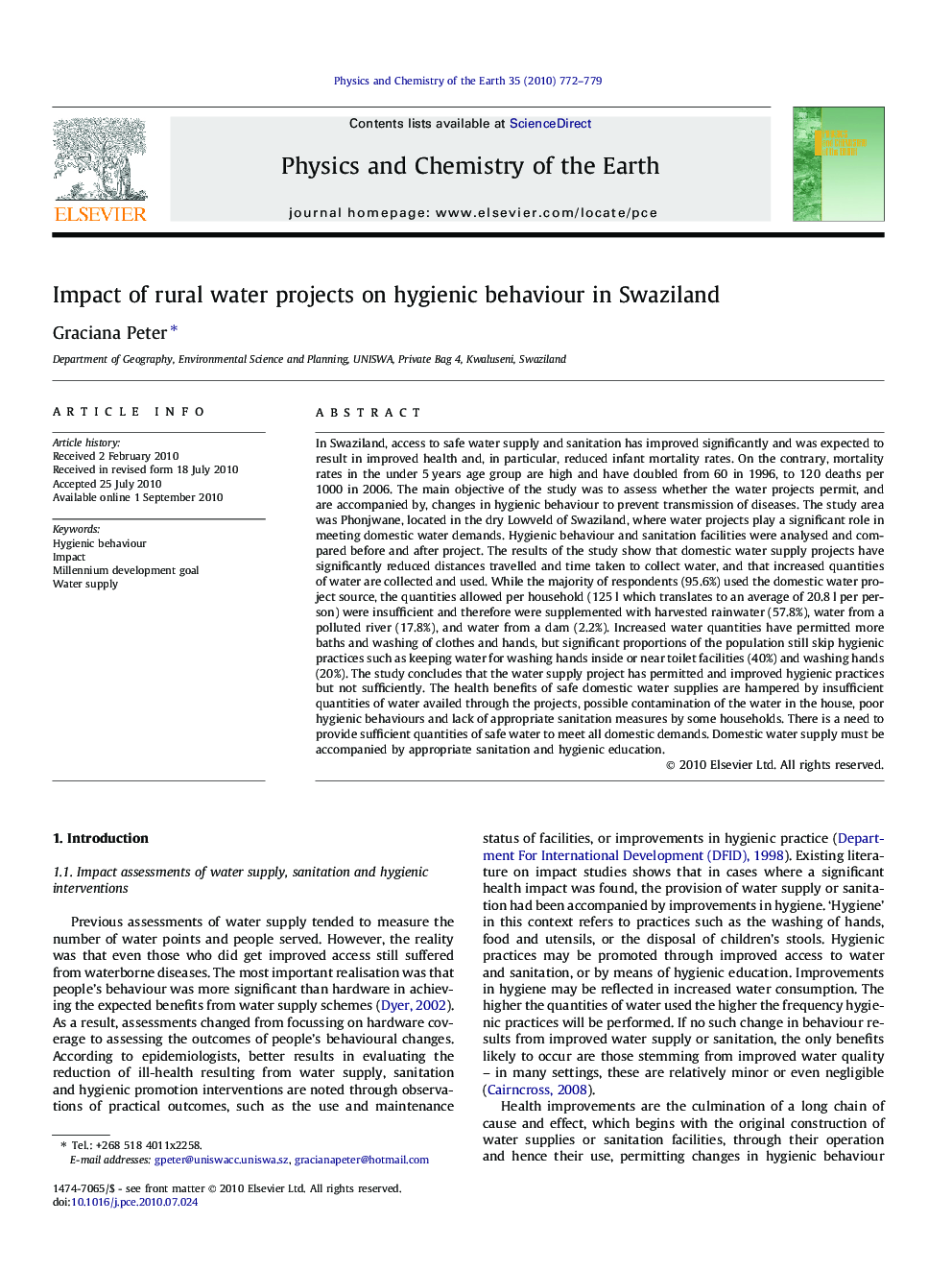| کد مقاله | کد نشریه | سال انتشار | مقاله انگلیسی | نسخه تمام متن |
|---|---|---|---|---|
| 4721782 | 1639382 | 2010 | 8 صفحه PDF | دانلود رایگان |

In Swaziland, access to safe water supply and sanitation has improved significantly and was expected to result in improved health and, in particular, reduced infant mortality rates. On the contrary, mortality rates in the under 5 years age group are high and have doubled from 60 in 1996, to 120 deaths per 1000 in 2006. The main objective of the study was to assess whether the water projects permit, and are accompanied by, changes in hygienic behaviour to prevent transmission of diseases. The study area was Phonjwane, located in the dry Lowveld of Swaziland, where water projects play a significant role in meeting domestic water demands. Hygienic behaviour and sanitation facilities were analysed and compared before and after project. The results of the study show that domestic water supply projects have significantly reduced distances travelled and time taken to collect water, and that increased quantities of water are collected and used. While the majority of respondents (95.6%) used the domestic water project source, the quantities allowed per household (125 l which translates to an average of 20.8 l per person) were insufficient and therefore were supplemented with harvested rainwater (57.8%), water from a polluted river (17.8%), and water from a dam (2.2%). Increased water quantities have permitted more baths and washing of clothes and hands, but significant proportions of the population still skip hygienic practices such as keeping water for washing hands inside or near toilet facilities (40%) and washing hands (20%). The study concludes that the water supply project has permitted and improved hygienic practices but not sufficiently. The health benefits of safe domestic water supplies are hampered by insufficient quantities of water availed through the projects, possible contamination of the water in the house, poor hygienic behaviours and lack of appropriate sanitation measures by some households. There is a need to provide sufficient quantities of safe water to meet all domestic demands. Domestic water supply must be accompanied by appropriate sanitation and hygienic education.
Journal: Physics and Chemistry of the Earth, Parts A/B/C - Volume 35, Issues 13–14, 2010, Pages 772–779